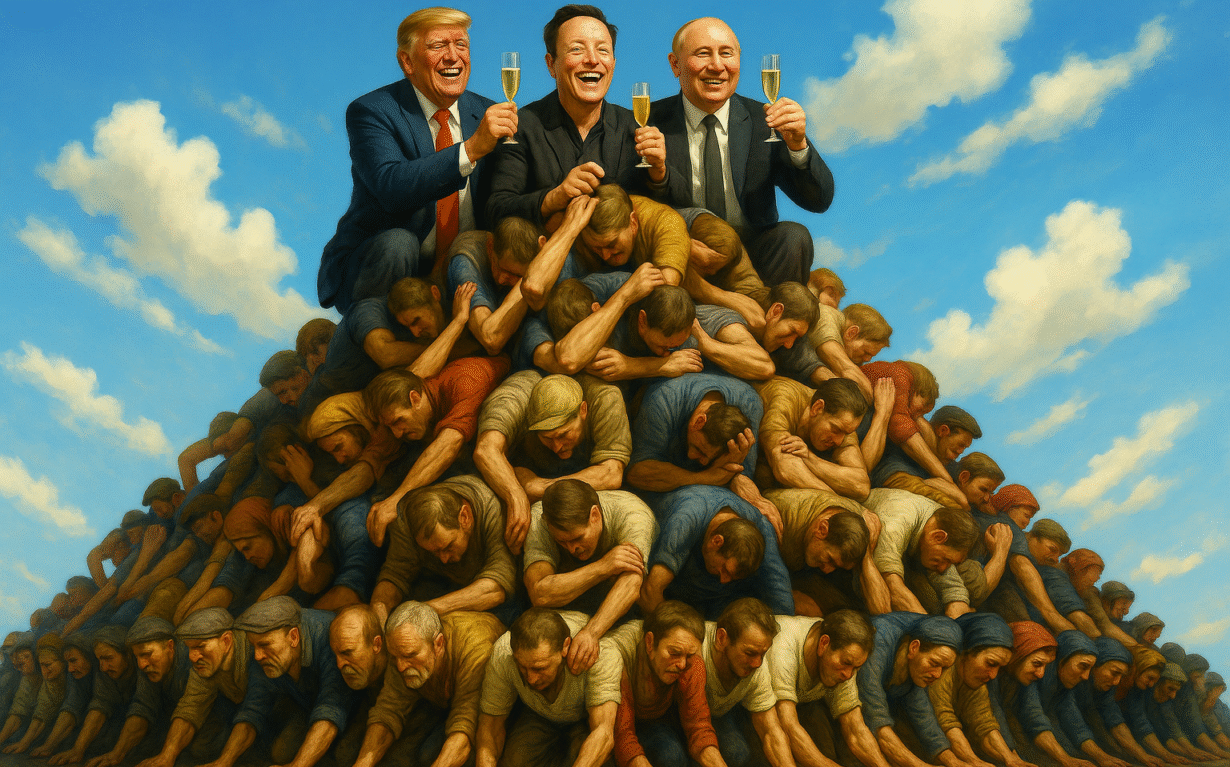The Hidden Law That Breaks Every Utopia
There’s a story as old as civilization itself—a story of hope, reform, and failure that has played out in empires and communes, capitalist powerhouses and socialist experiments. It is the story of human beings trying, again and again, to build a society that is truly fair, just, and free from exploitation. Yet time after time, something unseen sabotages the best designs. Elites re-emerge. Hierarchies harden. Injustice creeps back in.
If you look closely, you’ll see the same hidden driver at work: the demand for recognition.
The Engine Beneath the Surface
Beneath every law, institution, and revolution, there is something more primitive than any ideology.
Humans, like the apes from which we evolved, are wired to seek distinction—to be seen, validated, admired, or at the very least, not ignored. This isn’t vanity or a side effect of culture. It’s a neural engine, built by evolution itself. In the animal kingdom, it governs who gets to mate, who eats first, who survives. In humans, it governs everything: who rises, who falls, who matters.
Try to build an egalitarian world, and this drive simply adapts. If wealth is leveled, people compete for influence, style, or “virtue.”
Cap status in one domain, and it pops up in another, like air trapped under a sheet.
Every Reform, Every Revolution—A New Pyramid
It happened to Marx’s dream of socialism. The old class structures were overthrown, but new elites—party bosses, apparatchiks, their families—took their place.
It happens in Western democracies. “Fair trade” promises dignity for workers, yet the global pyramid remains, with Western consumers chasing the dream of joining the 1%, while workers in exporting countries live at subsistence.
Even anti-elite revolutions, the ones that seem most pure, end up birthing their own insiders—people who know the right language, who claim moral superiority, who subtly gatekeep the new order.
The recognition loop is a shapeshifter: you can’t cage it with policy, you can only force it to evolve.
Mouse Utopia: A Mirror We Should Fear
This problem isn’t just human. In the famous “mouse utopia” experiments, rodents were given unlimited food, water, and safety. For a time, they thrived. But as the population grew, social order broke down. Mice withdrew, attacked each other, killed their young. The experimenters saw that even when material needs were met, social and psychological needs—space, distinction, role—were not. The population collapsed.
It’s a dark mirror: as human societies grow more crowded and complex, the struggle for recognition intensifies.
When the means for distinction run out, violence or nihilism erupts.
The New Oligarchies—West, East, and Everywhere
Look at Vietnam, China, or any “state capitalist” model. Yes, millions have been lifted from poverty.
But a new fusion of party, state, and business has created a class of insiders: not only rich in money, but in power, connections, and privilege. Crackdowns on “oligarchs” happen, but only when they threaten the supremacy of the ruling party, never when they quietly reinforce it.
In the West, tech titans and financial moguls have gamed the recognition loop, digitizing and monetizing our attention, our data, even our desire to matter.
In every system, recognition is the true currency. And as long as it is scarce, people will do anything to get it—work themselves sick, betray ideals, turn on each other, or follow demagogues who promise they will finally be seen.
Why Reform Alone Always Fails
What about radical reform? Democratize ownership, cap wealth, break up monopolies, design fairer elections—doesn’t this finally fix the game?
It never does.
As soon as you block one path to distinction, others spring up. If you ban excessive wealth, people compete for cultural capital, for insider status, for having “the right ideas.”
Even movements that promise to end status-seeking end up with their own heroes, celebrities, and martyrs.
And when recognition is too hard to achieve for too many—when there are too few roles, too little space—resentment festers. The cycle of violence, withdrawal, and collapse begins anew.
The Only Real Escape: Seeing the Loop
So, is humanity doomed to repeat this cycle—utopia, hierarchy, crisis, collapse—forever?
Perhaps not, if we learn to see the loop for what it is.
The real revolution is not in laws or wealth, but in consciousness.
A society that teaches its people how recognition drives them, how status-seeking shapes every choice, every institution, and every movement, might be able to loosen its grip.
Not by pretending we can abolish the loop, but by making it visible—by rewarding genuine contribution, by multiplying paths to meaning that don’t depend on climbing an endless pyramid, by naming the game so it loses its magic.
A Different Kind of Society
A fair society is not a perfect one. It’s one that knows its own flaws—one that builds structures of dignity and security, yes, but also builds awareness of the recognition loop itself.
It’s a society that doesn’t fall for every new pyramid scheme of status, that treats success with humility, and that values forms—real work, real care, real creativity—over the hunger to be seen at any cost.
Until we learn this, no reform will ever last. The hidden law of recognition will always find a way to break our utopias—and start the cycle all over again.


